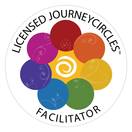|
Barb Kobe is a trained Creativity Coach* and Group Facilitator. Barb has a degree in psychology with an emphasis on the expressive arts. She is a NLP Practitioner and a trained Journey Circles™ Facilitator* and Artbundance™ Creativity Coach.* She has been teaching dollmaking and healing since 2000 in retreat, personal classes, and online settings.
Her book, The Healing Doll Way: A Guided Process Creating Art Dolls for Self-Discovery, Awareness and Transformation was first published in 2018. It won two Indie Book Awards in 2019 and has been printed three times. NLP (Neuro Linguistics Programming) Practitioner Certificate ARTbundance Creativity Coaching The ARTbundance™ Philosophy is an innovative approach of self-discovery through creativity, based on the 9 ARTbundance Principles (Gratitude, Intuition, Balance, Choice, Vision, Action, Attraction, Connection, Service) and the exciting utility of ARTsignments™: unique exercises that use art and creativity as a conduit for exploration and transformation. http://artellaland.com/act.html email: [email protected] JourneyCircles™It is a process based on expressive arts, transformative process, creative mapping techniques and visual narrative, using the simplicity of collage to invite your stories to guide you. http://catcaracelo.com/journeycircles-and-training/ Creativity Coach I studied with Creativity Coach and Mentor, Eric Maisel. I like his explanation of creativity coaching. Creativity coaching is one person offering soup-to-nuts help to another person who is trying to live a successful creative life. The creative client may have career concerns, creative blocks, psychological issues, relationship issues, or existential and spiritual crises, and may face a gamut of challenges that come from wanting and needing to create. A creativity coach expects all of this and is ready for all of this.” “An effective creativity coach is aware of the big picture: human nature, personality structure, the psychological makeup of creative individuals, the problems inherent in the work creative individuals attempt, the shape of the different intellectual and art marketplaces, and so on. When a client comes in, the coach joins with the new client, as one human being to another and one creative person to another, listens to what the client is saying, and makes observations and suggestions.” “Creativity coaching is not psychotherapy but creativity coaches need to have psychological insight and acumen and recognize that psychology is on the table whenever one human being attempts to help another. But the coaching they offer does not represent itself as psychotherapy, any more than the mentoring or coaching that a proficient writing teacher or art teacher provides represents itself as psychotherapy.” http://ericmaisel.com/creativity-coaching/ |
What People say,“Barb is a creative genius who goes out of her way to produce innovative, quality products. I cannot say enough for her skills and her work ethic! Her skills have helped countless people around the world.” Kelly Guinan |

